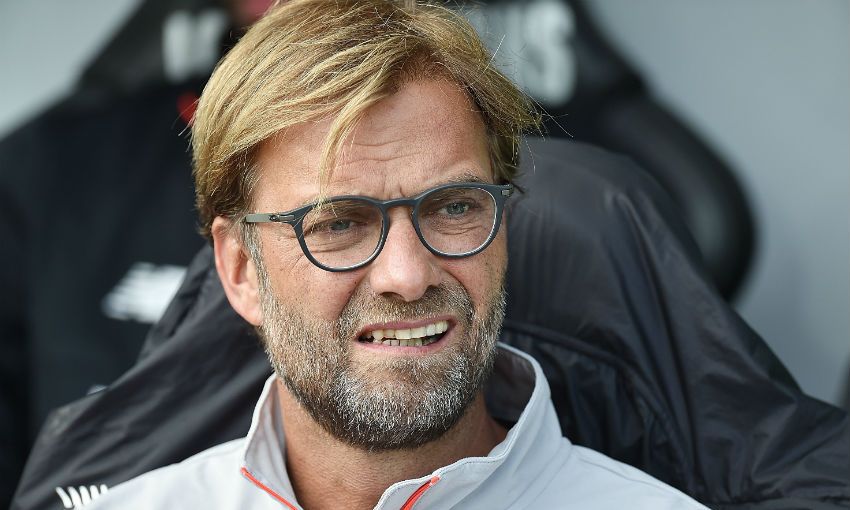Boss: I'm often waiting for half-time, it's very important
For all of the work that Liverpool do in preparing for every match, Jürgen Klopp treasures the opportunity to alter his team's gameplan during the half-time interval.
“Sometimes I’m really waiting for half-time,” the manager told Goal.com. “It’s like ‘Come on, four minutes, five minutes to go’ so we can fix things.”
A glance at the Premier League table might suggest not much has been broken so far this season, given the Reds top the standings with eight victories and 30 goals.
Several opponents have been swept aside on the way, with six scored against Watford, five put past Hull City and four notched in meetings with Arsenal, Crystal Palace and Leicester City.
But it does not always go to plan, of course, and Klopp knows he has to be prepared for any situation – which is why the boss relishes a chance to affect his side in whichever manner required.
He added: “The break is a very important time. I give the players first the opportunity to breathe, to drink and the medical staff checks if they are all alright.
“Then we watch a few situations from the first half. Only when they are really clear for our message, we use them. If not, we don’t and I talk to the players.
“I really like it because it’s a very important situation. For example, you are 2-0 in the lead and everybody knows 2-0 doesn’t decide the game at half-time, but actually sometimes it feels like it.
“So it’s a real challenge to stay concentrated, to stay awake, to do the right things, to keep on going and all that stuff.
“Or being only 1-0 down, which is a completely different situation, and there’s so many to work through. I think I’ve had them all at one time – being behind, being in the lead, all that stuff, so I like to find the solutions.”
Klopp continued: “I don’t have a 100 per cent record. For example, I thought one of my best half-time speeches was in Basel! There’s no secret, nobody knows exactly how it works, but that’s how it is.
“We can only give the boys help, this is what I always say – we can give them advice, we can give them a few rules, we can give them opportunities, possibilities, all that stuff, but then they decide what they take, and when.
“It makes sense that we do the things together, it makes sense that we have good timing, it makes sense that we are really tuned as a team, but they have to decide and they need to feel free.
“If they always play a not-so-good pass, look at me and wonder ‘What is he thinking?’ – that’s not right. They all know already that it was not too good, so I can say ‘Yeah, it was no good’ but it makes no sense when it’s obvious. So the message is to stay in the game, to do it again, to try everything.”



